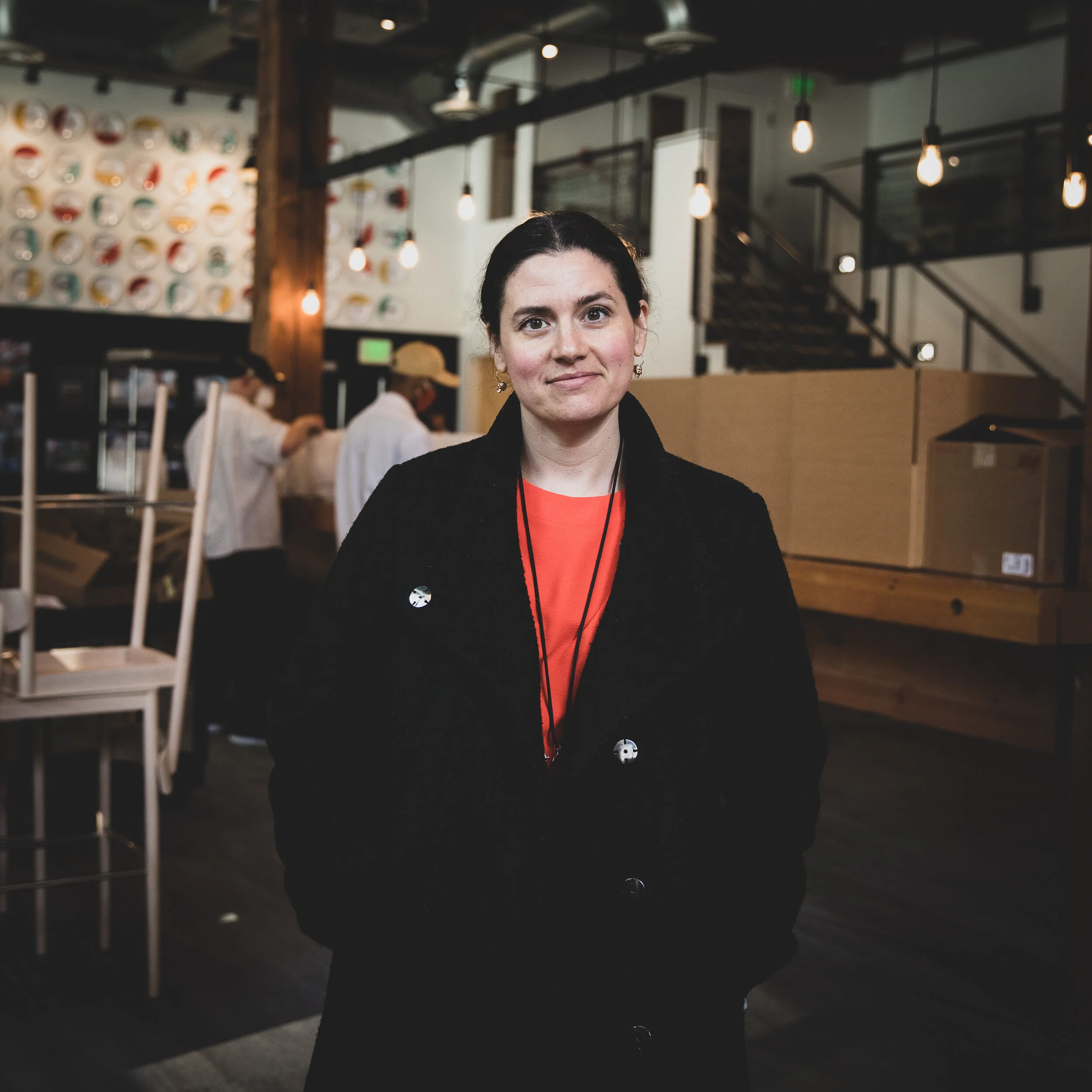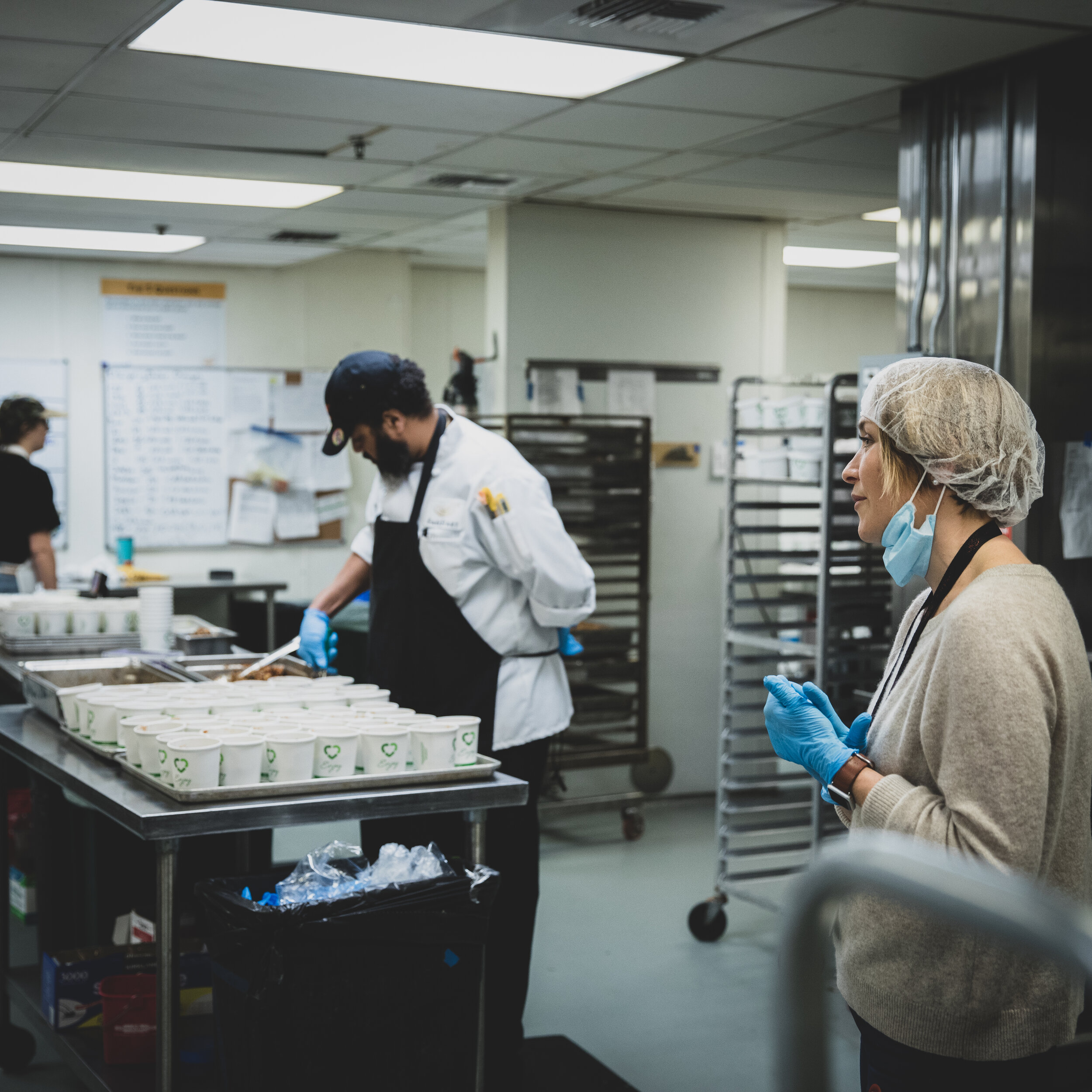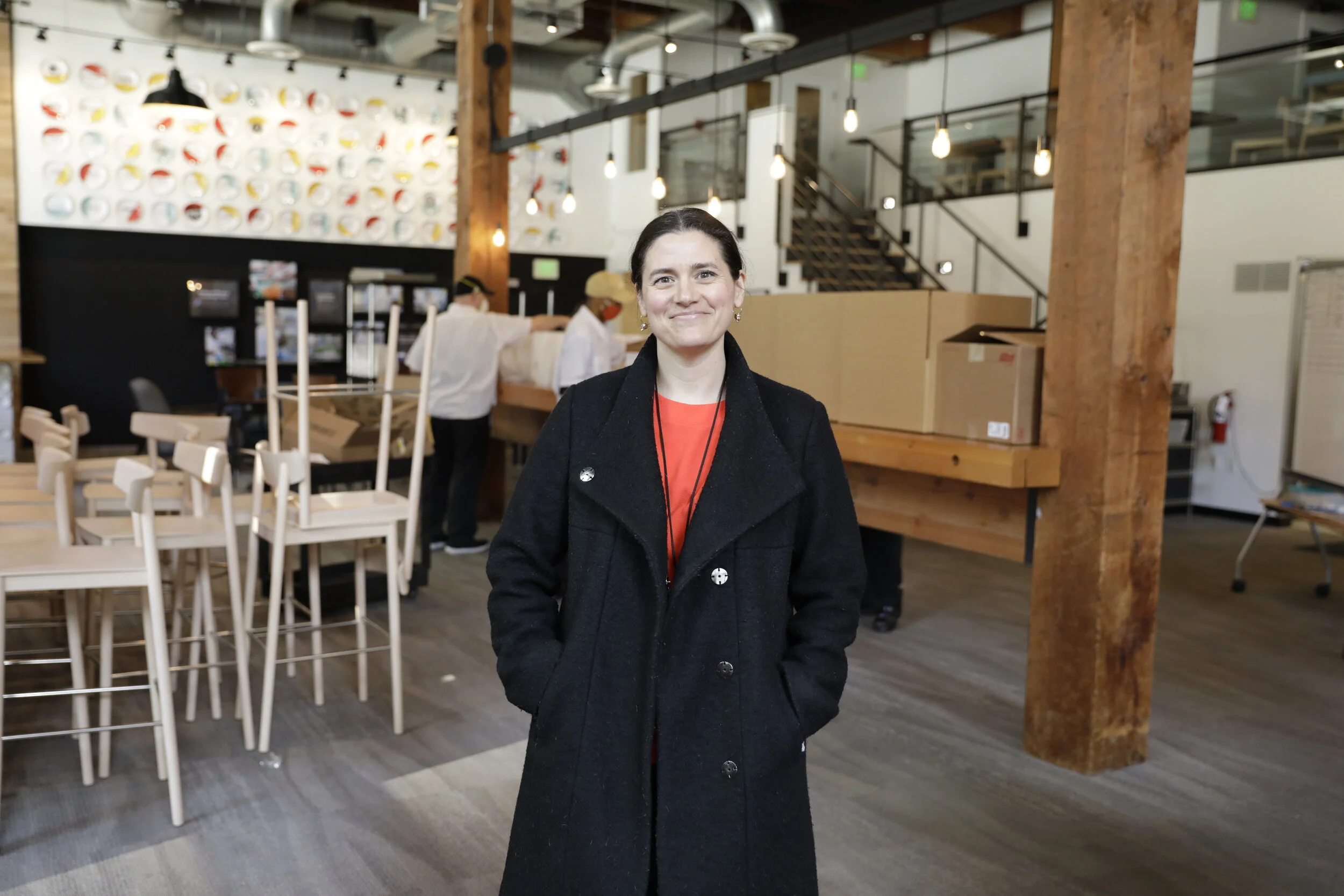FareStart- Emily Ditty
Emily Ditty - FareStart
Emily Ditty - Interview Transcript
As of mid March we transformed our dining room into a packaging space. So one of the things that you saw happening there was how the meals are actually put into the boxes and then sent out to be delivered to various places. We as of Friday will be close to 150,000 meals provided to the community and we're able to do that with a lot of great partnerships. So those boxes that are being packed up will be delivered not only by FareStart but we also have drivers from Solid Ground. We have Charlie's Produce standing by with help. We recently found out that there's a good chance that Coca-Cola is gonna step in and help. So there's a lot of great support out there so that we can get all of these 150,000 meals to the people who need them.
So before COVID our organization produced about 5,000 community meals a week. Currently we are producing 7,500 meals a day. That's a significant jump in our productivity and our ability to meet community needs. We're expecting by the end of the week that we will be producing 10,000 meals a day. And it's been such an honor to be part of this organization as we pivot and expand our scope and impact in the community in this way.
Before COVID, FareStart was primarily focused on a couple of areas. So focused on training students for culinary and food service industry jobs. We also had social enterprises, restaurants and cafes, that would provide platforms for our students to practice the skills that they were learning and also generated revenue back for the organization so we could pay for programs. On a typical day we would have a group of students enrolling every single week, between six and 12 students typically. Our kitchens would be full of chefs and chef trainers working alongside our students. Right before the COVID crisis hit we had about 50 active students in the program. It's a 16 week program so you can imagine how disappointing it was for our students who were in week 14 say to find that the program was being placed on hold.
We also are very committed to caring for our students. So those roughly 50 students who are on hold, we’re currently continuing to house. We're providing food for them. We're making sure that they have access to their case management support, mental health services. I was on a call this morning and our program director reported that she's been checking in with all of our case managers and none of our students have experienced any kind of relapse in their recovery if they were in addiction recovery programs of any kind, which is kind of amazing because this is such an unusually stressful time. And I can only imagine how hard our students are working to maintain their sobriety and to stay focused and positive even though they can't be here with us right now.
We're thinking about the future and what does recovery look like for our organization. And it's gonna take time for our social enterprises to get back online, for us to have a catering program again, for us to have the restaurant with folks lined up waiting to come in and have lunch, for us to have our cafes up and running. And we need to address the space between now and when we are all back to normal and make sure that we are able to continue to serve the community, continue to serve our current students and that we are ready for the large number of folks who are going to be needing our culinary training program, that are gonna be looking for ways to re-enter work after this crisis is over. So we are doing both the short term fundraising needs and we're also keeping an eye to the long term and what does it look like for us 18 or 24 months down the road.
We saw a big uptick in donations and we received a donation from a woman. She identified herself in her notes. It was an online donation. It was a $25 donation and she said, "I just got laid off and I don't know how I'm gonna pay my rent, but I'm giving you this money because I believe in FareStart." And for us it meant so much because we recognize what that $25 meant at this moment in that person's life. It's just been really overwhelming to see that while so many people are facing such uncertainties, that they still care for, are cheering for and supporting this organization and recognize that there are folks out there who have even less. And the privilege, the comfort that many of us experience while there's fear that some of that might go away, I think we honor and recognize that and we want to give a piece of that to others.








